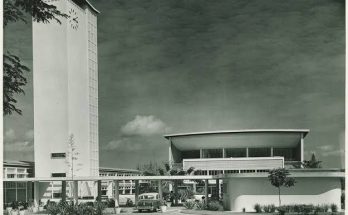They say, “When the cat’s away, the mice will play.” But what happens when the cat is not away but joins the feast? In Nigeria’s flailing education system, where the quality in public universities dangles by a thread and learning has become a privilege, the collapse of meaningful student unionism is no longer just a symptom; it is part of the disease.
Across campuses, from Ibadan to Nsukka, Ile-Ife to Zaria, student unions were once the moral conscience of Nigerian universities. They held authorities to account, defended the rights of the underserved, and stood as bulwarks against systemic decay. Regrettably, those days now feel like whispers from a distant past. What we have today is a generation of student leaders seemingly more interested in photo-ops than sacrifice, and more aligned with vice-chancellors than with their struggling colleagues.
The University of Ibadan, West Africa’s oldest university and one of its most respected, now finds itself at the epicentre of this silent crisis. Tuition hikes, declining infrastructure, and the persistent exclusion of the poor from higher education continue to deepen. Yet, the student leadership has barely muttered a word. Students of the University of Ibadan are currently facing a fresh wave of fee hikes across various faculties, compounding the financial strain already imposed by the previous increment. The new hikes vary from faculty to faculty, with no clear structure or justification provided, leaving many students confused and distressed.
Despite the widespread impact of this development, the Students’ Union’s response has been limited to a single memo, which failed to offer any concrete assurance or steps to the student body. In the absence of strong union intervention, a few Hall Representatives—Honorables—have taken it upon themselves to circulate forms asking students to indicate how the increment has affected them. This attempt at gathering data, while commendable in its intent, has not been backed by any official union plan of action, leaving many to question the Union’s resolve and commitment in the face of policies that directly affect the students they represent.
The silence is not accidental. It is the result of a system that has gradually tamed student activism, curbed dissent, and rebranded advocacy as “noise-making.” With increasing surveillance, disciplinary threats, and the erosion of union independence, many students in leadership positions now see survival, not service, as their primary goal. What is student unionism without a backbone? What good is a megaphone if it’s never used?
It is also being asked on our campus if the fight for accessible education has been abandoned. To answer the question though, one must first remember what once was.
There was a time, not long ago when student unionism in Nigeria was more than a ceremonial structure or a stepping stone to political office. It was a force. From the days of the National Union of Nigerian Students (NUNS) in the 1970s to the early iterations of the National Association of Nigerian Students (NANS), students were at the forefront of national discourse. They challenged military regimes, shut down campuses in protest of exploitative policies, and staged sit-ins against fee hikes and autocratic administrations.
In 1978, during the Ali Must Go protests led by Segun Okeowo under the banner of the National Union of Nigerian Students (NUNS), arguably Nigeria’s most iconic student-led revolt, students across the country resisted a proposed increase in meal ticket prices under the then Education Commissioner, Col. Ahmadu Ali. The uprising was neither about food nor comfort; it was about principle, about a belief that the Nigerian state had an obligation to its youth. That protest led to deaths, mass arrests, and the eventual proscription of NUNS. But it also immortalised the students’ commitment to equity and access.
Fast-forward to the 1990s and early 2000s, student unions remained a vital check on both university management and government excesses. They called out the non-disbursement of bursaries, protested prolonged strikes, and resisted sudden policy changes. Student leaders were scholars and tacticians, not mere spokespersons. They knew the policy. They quoted the Constitution. They studied movements across the Global South, from Soweto to Santiago, and brought that ideological clarity to campus organizing.
So What Changed?
Two critical things: first, the deliberate weakening of unions by university authorities and government agencies who saw critical student voices as threats to “order.” Unions were suspended indefinitely, student leaders were expelled or criminalised, and over time, a culture of fear and depoliticisation took hold. Secondly, a generational shift occurred. As neoliberal values took root, politics became transactional. Activism gave way to access. Unionism became, on many campuses, a stepping stone to proximity with power rather than a platform for challenging it.
In this climate, student leaders today are often more likely to sign condolence registers than protest letters.
Education in Nigeria is under siege, not just by underfunding and policy inconsistency, but by an elite consensus that sees universities as businesses rather than public goods. A student union worth its name should be ringing alarm bells, holding emergency congresses, demanding transparency in budgeting, and building coalitions across campuses. Instead, many are content to act as protocol officers for management events or pose as influencers for institutional PR.
This failure of student leadership mirrors the broader collapse of civic engagement in the country. As national politics becomes more transactional, so too have the micro-politics on our campuses. And yet, it is precisely in these spaces that future leaders are forged or corrupted.
There is still time to reclaim the soul of student unionism in Nigeria, but the clock is ticking. Students must organise outside the silence, revive ideological clarity, and restore solidarity as the beating heart of activism. A fee hike here, a policy change left unchallenged, these decisions will build an ivory tower too tall for the average Nigerian to ever enter.
If universities are to remain engines of mobility and not monuments to inequality, then students must once again learn to raise their voices not in empty chants, but in strategic, informed resistance.
The University of Ibadan, given its historic stature, must lead that renaissance. If student leaders cannot find the moral clarity to fight for the very students they represent, then those students must reclaim the platform and build new ones. After all, history tells us that the most consequential student struggles in Nigeria did not begin with management approval, they began with refusal. Refusal to accept injustice. Refusal to normalise silence. Refusal to let education become a luxury.The price of education is rising. But the price of silence may be even higher.




